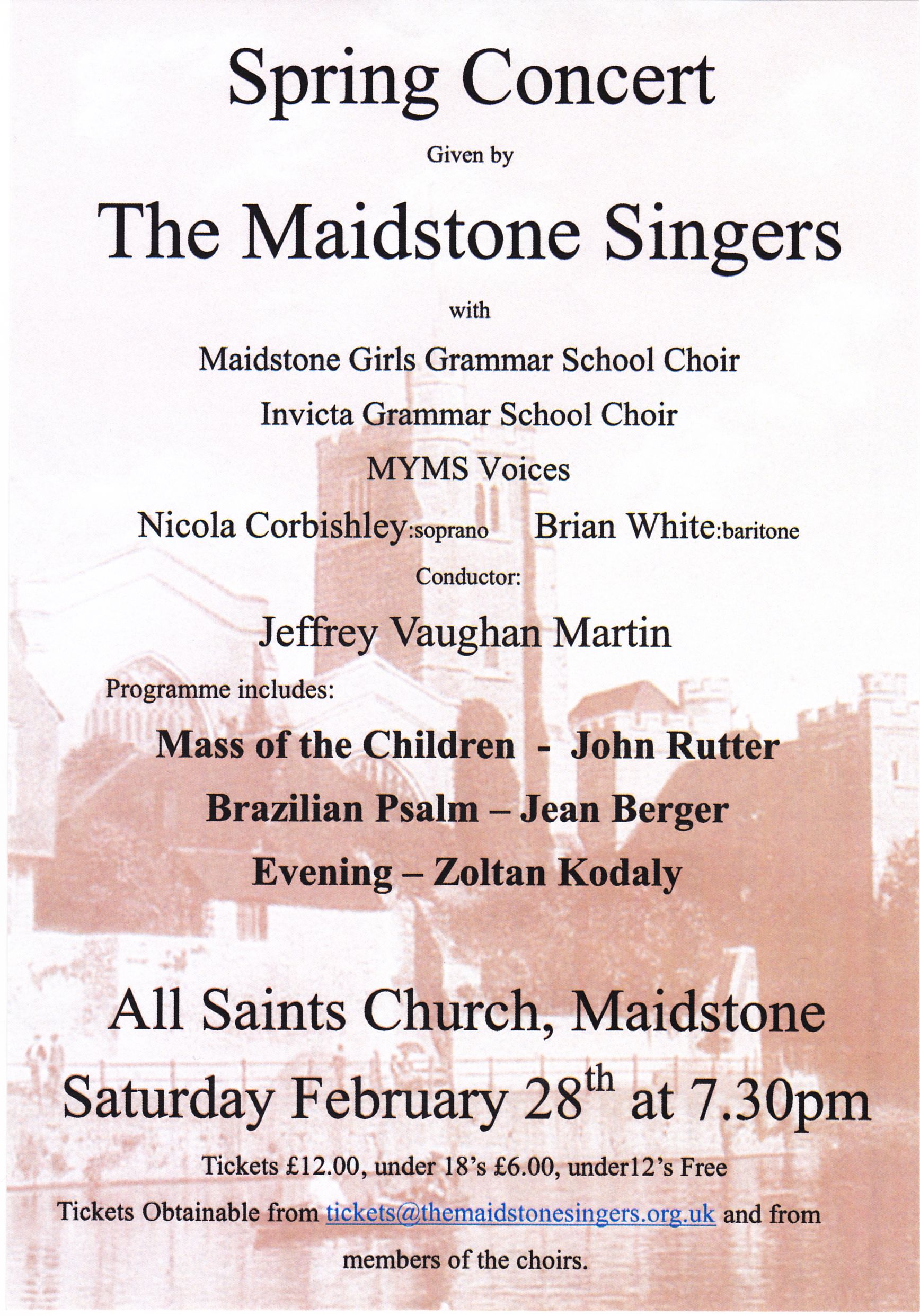
Maidstone Singers

John Rutter CBE
John Rutter was born in London on the 24 September 1945 and thus 2015 is his 70th anniversary year. He was the son of an industrial chemist and grew up living over the Globe pub on London's Marylebone Road. He was educated at Highgate School, where a fellow pupil and friend was John Tavener, and then went on to read music at Clare College, Cambridge, where he was a member of the choir. He served as director of music at Clare College from 1975 to 1979 and led the choir to international prominence.
In 1981, Rutter founded his own choir, the Cambridge Singers, which he conducts and with which he has made many recordings of sacred choral repertoire (including his own works), particularly under his own label Collegium Records. He now lives at in a small village just outside St Ives with his American wife JoAnne and son Nick and still conducts choirs and orchestras around the world. Indeed, Norma Morris and I went to one of his carol concerts at the Royal Albert Hall this last Christmas! In 1996, the Archbishop of Canterbury conferred a Lambeth Doctorate of Music upon him in recognition of his contribution to church music.
From 1985 to 1992, Rutter suffered severely from myalgic encephalomyelitis (ME, or chronic fatigue syndrome), which restricted his output and so for a while he stopped writing music on commission, as he was unable to guarantee meeting deadlines. Rutter's compositions are chiefly choral, and include Christmas carols, anthems and extended works such as a Gloria, the Requiem, the Magnificat and lastly Mass of the Children (see next article.) Rutter also works as an arranger and editor. As a young man he collaborated with Sir David Willcocks on the extraordinarily successful Carols for Choirs anthology series. The choir of All Saints have a large number of Rutter’s carols and anthems in their repertoire of which one of the most popular is “The Lord bless you and keep you.” This piece was composed in 1981 for the memorial service of Edward T. Chapman, the director of music at Highgate School, London, with whom Rutter had studied when he attended the school
Rutter's music is eclectic, showing the influences of the French and English choral traditions of the early 20th century as well as of light music and American classic songwriting. Almost every choral anthem and hymn that he writes also has an orchestral accompaniment in addition to the standard piano/organ accompaniment, using various different instrumentations such as strings only, strings and woodwinds or full orchestra with brass and percussion. Choirs and audiences throughout the world love his music and long may he continue composing!